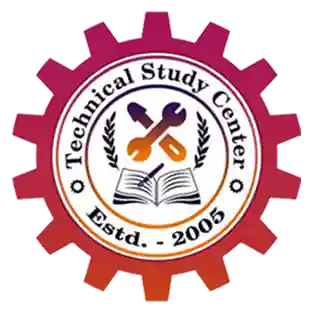The world moves on wheels. From cars to trucks, from motorcycles to buses—every vehicle needs care and maintenance to run smoothly. But who ensures these vehicles stay in top condition? A motor mechanic does.
A skilled motor mechanic is not just someone who fixes broken vehicles; they are problem solvers, technicians, and engineers in action. At Technical Study Center, we prepare students for the ITI Motor Mechanic course with expert training, hands-on practice, and deep knowledge of modern automotive technology.
The Smart Approach to Learning Motor Mechanics
Being a motor mechanic is not just about using tools; it’s about understanding how machines work and how to make them better. Many students focus only on repairing parts, but a great mechanic learns how to prevent damage before it happens.
1. Understanding the “Heart” of a Vehicle – The Engine
A vehicle’s engine is like a human heart—if it stops working, everything stops. A skilled motor mechanic must:
- Know How Each Part Connects – The engine, battery, fuel system, and cooling system all work together. If one part fails, it affects the others.
- Read Engine Sounds Like a Doctor Reads a Pulse – A small change in sound can mean a major problem inside the engine. Mechanics who can diagnose problems by listening work faster and more accurately.
- Master Engine Tuning for Maximum Performance – Adjusting the air-fuel ratio, ignition timing, and valve clearance can make a car run smoother and more fuel-efficient.
A deep understanding of engines makes a mechanic a true expert, not just a repairman.
2. Learning to Diagnose Problems Without Guesswork
Most mechanics rely on trial and error, but a smart mechanic finds the issue fast using:
- OBD Scanners (On-Board Diagnostics) – Modern vehicles have a computer system that shows error codes. Learning to read these codes saves time and effort.
- Smoke Testing for Leaks – Instead of taking apart the engine to find a leak, professionals use harmless smoke to detect even the smallest cracks in hoses or seals.
- Thermal Imaging to Check Heating Issues – Using a thermal camera helps find overheating areas before the vehicle breaks down.
These modern techniques help diagnose problems like a pro.
3. Mastering Both Traditional & Modern Vehicles
A true motor mechanic knows both old and new technology. Many vehicles today have hybrid engines, automatic transmissions, and electric components. A skilled mechanic must:
- Learn the Basics of Hybrid & Electric Vehicles – These are the future of automobiles, and mechanics who can repair them will always be in demand.
- Understand Manual & Automatic Transmissions – Some vehicles still use manual gears, while new ones have automatic or CVT systems. Learning both opens more career opportunities.
- Upgrade Knowledge on Modern Braking Systems – New cars use ABS (Anti-lock Braking System) and EBD (Electronic Brake Distribution). A skilled mechanic must know how these systems work.
Keeping up with new automotive technology makes a mechanic a leader in the industry.
4. Hands-On Learning for Real-World Challenges
At Technical Study Center, students don’t just read books—they work on real vehicles. Our training includes:
- Complete Engine Overhauling – Taking apart an engine, understanding each part, and assembling it back.
- Real-Time Fault Diagnosis – Fixing live issues in working vehicles.
- Tire Balancing & Wheel Alignment – Learning how to correct vehicle stability and prevent uneven tire wear.
Real practice builds confidence and expertise.
5. Preparing for ITI Exams & Government Job Opportunities
Motor mechanics are needed in railways, defense, transport corporations, and industrial vehicle maintenance. At Technical Study Center, we help students prepare for ITI exams and government jobs by providing:
- Exam-Oriented Study Plans – Covering engine mechanics, electrical systems, and fuel technology.
- Mock Tests & Practical Workshops – Helping students apply their knowledge effectively.
- Shortcut Methods for Quick Repairs – Teaching techniques to diagnose and fix vehicles faster.
With the right training, students can qualify for top government and private sector jobs.
6. Developing Problem-Solving & Business Skills
A successful mechanic must also know:
- Time Management – Fixing vehicles quickly and efficiently.
- Customer Communication – Understanding a customer’s complaint even if they don’t know technical terms.
- Workshop Management – Keeping tools, spare parts, and records organized for smooth operations.
At Technical Study Center, we train students in both technical and business skills for long-term success.
